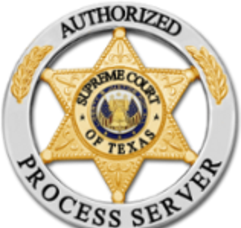Compelling Federal Witnesses to Attend State Court under Touhy Sherman & Plano, TX Criminal Defense Lawyer (Part 4)
 All of this considered, as a practical matter an attorney should get a release from the client and obtain certified admissible paper records of all such witnesses in the ongoing fight. Agencies can be very courteous in getting you these documents as they know it helps them stay out of Court and live testimony. Sometimes there are even strategic reasons that the records are better than a live witness. If a Court rules that a witness is unavailable for a state subpoena, the evidence can come in as government records, business records, and other possible hearsay exceptions.
All of this considered, as a practical matter an attorney should get a release from the client and obtain certified admissible paper records of all such witnesses in the ongoing fight. Agencies can be very courteous in getting you these documents as they know it helps them stay out of Court and live testimony. Sometimes there are even strategic reasons that the records are better than a live witness. If a Court rules that a witness is unavailable for a state subpoena, the evidence can come in as government records, business records, and other possible hearsay exceptions.
However, Touhy and its progeny cut against the fundamental right of criminal defendants to compel the attendance of all witnesses necessary for their defense. We as criminal practitioners should continue to litigate and attack the Touhy doctrine and get courts to narrowly define it according to its original holding.
 Sherman & Plano, TX Criminal Defense Lawyer Blog
Sherman & Plano, TX Criminal Defense Lawyer Blog



 In Forgione v. HCA, Inc. 954 F.Supp.2d 1349 (N. D. Florida 2013), the Government made an unfounded argument that state employees and agents could also be Federal employees for purposes of 28 U.S.C. section 1442. The Court for purposes of the question at bar stated:
In Forgione v. HCA, Inc. 954 F.Supp.2d 1349 (N. D. Florida 2013), the Government made an unfounded argument that state employees and agents could also be Federal employees for purposes of 28 U.S.C. section 1442. The Court for purposes of the question at bar stated: You may be reading this because you received a Touhy letter from the Department of Veterans Affairs, Social Security or another federal agency that does not want to comply with your state-court subpoena. They are citing the Supreme Court’s Decision in Touhy, where the Court stated that the Federal housekeeping statute prohibited an FBI agent from being compelled by subpoena and contempt into bringing in his testimony and agency documents to testify regarding a state inmate’s claims. See Touhy v. Ragen, 340 U.S. 462.
You may be reading this because you received a Touhy letter from the Department of Veterans Affairs, Social Security or another federal agency that does not want to comply with your state-court subpoena. They are citing the Supreme Court’s Decision in Touhy, where the Court stated that the Federal housekeeping statute prohibited an FBI agent from being compelled by subpoena and contempt into bringing in his testimony and agency documents to testify regarding a state inmate’s claims. See Touhy v. Ragen, 340 U.S. 462.
 From the “facts” as disseminated in the media, there are also problems with the apparent destruction of records on the Clinton side. Following the Enron Collapse and the Arthur Anderson scandal, Congress passed the Sarbanes Oxley bill which overhauled accounting and recordkeeping at financial institutions. In that law there was also a new obstruction of justice law that created an easier statute to prosecute than most of the old obstruction of justice statutes, as it did not contain a “willful” requirement. 18 USC section 1519, destruction, alteration or falsification of records in federal investigations and bankruptcy, states that “Whoever knowingly alters, destroys, mutilates, conceals, covers up, falsifies, or makes a false entry in any record, document, or tangible object with the intent to impede, obstruct, or influence the investigation or proper administration of any matter within the jurisdiction of any department or agency of the United States or any case filed under title 11, or in relation to or contemplation of any such matter or case, shall be fined under this title, imprisoned not more than 20 years, or both.” Thus, if there were emails and chains of emails destroyed in the investigation without explanation, a prosecutor could likely obtain an indictment on the conduct from all persons who have probable cause to have destroyed or ordered the destruction of the emails with the intent to keep them from availability in an investigation. Also, the case law requires that the emails actually be destroyed and not just moved from one folder to another.
From the “facts” as disseminated in the media, there are also problems with the apparent destruction of records on the Clinton side. Following the Enron Collapse and the Arthur Anderson scandal, Congress passed the Sarbanes Oxley bill which overhauled accounting and recordkeeping at financial institutions. In that law there was also a new obstruction of justice law that created an easier statute to prosecute than most of the old obstruction of justice statutes, as it did not contain a “willful” requirement. 18 USC section 1519, destruction, alteration or falsification of records in federal investigations and bankruptcy, states that “Whoever knowingly alters, destroys, mutilates, conceals, covers up, falsifies, or makes a false entry in any record, document, or tangible object with the intent to impede, obstruct, or influence the investigation or proper administration of any matter within the jurisdiction of any department or agency of the United States or any case filed under title 11, or in relation to or contemplation of any such matter or case, shall be fined under this title, imprisoned not more than 20 years, or both.” Thus, if there were emails and chains of emails destroyed in the investigation without explanation, a prosecutor could likely obtain an indictment on the conduct from all persons who have probable cause to have destroyed or ordered the destruction of the emails with the intent to keep them from availability in an investigation. Also, the case law requires that the emails actually be destroyed and not just moved from one folder to another.
 18 USC section 798 states: “(a) Whoever knowingly and willfully communicates, furnishes, transmits, or otherwise makes available to an unauthorized person, or publishes, or uses in any manner prejudicial to the safety or interest of the United States or for the benefit of any foreign government to the detriment of the United States any classified information— (1) concerning the nature, preparation, or use of any code, cipher, or cryptographic system of the United States or any foreign government; or (2) concerning the design, construction, use, maintenance, or repair of any device, apparatus, or appliance used or prepared or planned for use by the United States or any foreign government for cryptographic or communication intelligence purposes; or (3) concerning the communication intelligence activities of the United States or any foreign government; or (4) obtained by the processes of communication intelligence from the communications of any foreign government, knowing the same to have been obtained by such processes— Shall be fined under this title or imprisoned not more than ten years, or both.” Here, the unsecured server made classified information available to anyone with access to the server and also hackers. The details have not been brought forward on how many people had such access, but it is common sense that at least the host of the server had unauthorized access. The details of the emails are also sketchy (and will not be detailed due to national security), but it is likely that the emails contained at least the type of information found in (3) and (4) of the statute. However, the statute not only requires this crime to be committed “knowingly,” but also “willfully,” which requires that a person know they are violating the law and intend to violate the law in doing the conduct. It is targeted for intentional espionage cases.
18 USC section 798 states: “(a) Whoever knowingly and willfully communicates, furnishes, transmits, or otherwise makes available to an unauthorized person, or publishes, or uses in any manner prejudicial to the safety or interest of the United States or for the benefit of any foreign government to the detriment of the United States any classified information— (1) concerning the nature, preparation, or use of any code, cipher, or cryptographic system of the United States or any foreign government; or (2) concerning the design, construction, use, maintenance, or repair of any device, apparatus, or appliance used or prepared or planned for use by the United States or any foreign government for cryptographic or communication intelligence purposes; or (3) concerning the communication intelligence activities of the United States or any foreign government; or (4) obtained by the processes of communication intelligence from the communications of any foreign government, knowing the same to have been obtained by such processes— Shall be fined under this title or imprisoned not more than ten years, or both.” Here, the unsecured server made classified information available to anyone with access to the server and also hackers. The details have not been brought forward on how many people had such access, but it is common sense that at least the host of the server had unauthorized access. The details of the emails are also sketchy (and will not be detailed due to national security), but it is likely that the emails contained at least the type of information found in (3) and (4) of the statute. However, the statute not only requires this crime to be committed “knowingly,” but also “willfully,” which requires that a person know they are violating the law and intend to violate the law in doing the conduct. It is targeted for intentional espionage cases.
 The presumption of detention is rebuttable, but very daunting. A person charged with a presumption case offense must rebut the presumption by clear and convincing evidence. This is the second most onerous burden in our law, right below proof beyond a reasonable doubt. Release is obviously far less common in these cases, but people with minor (or unprovable or nonexistent) roles in the offense with minimal criminal history who have a third party custodian stand a chance, and should not simply waive the detention hearing. In fact, the only time a person should waive their detention hearing is when they are being held outside the Federal courts: i.e., they would not be getting double credit for the holds if released, or people who have immigration holds. Even in these cases, the court can reopen the detention hearing if circumstances materially change, such as making bond on state charges (common) or getting the immigration hold lifted (rare).
The presumption of detention is rebuttable, but very daunting. A person charged with a presumption case offense must rebut the presumption by clear and convincing evidence. This is the second most onerous burden in our law, right below proof beyond a reasonable doubt. Release is obviously far less common in these cases, but people with minor (or unprovable or nonexistent) roles in the offense with minimal criminal history who have a third party custodian stand a chance, and should not simply waive the detention hearing. In fact, the only time a person should waive their detention hearing is when they are being held outside the Federal courts: i.e., they would not be getting double credit for the holds if released, or people who have immigration holds. Even in these cases, the court can reopen the detention hearing if circumstances materially change, such as making bond on state charges (common) or getting the immigration hold lifted (rare).